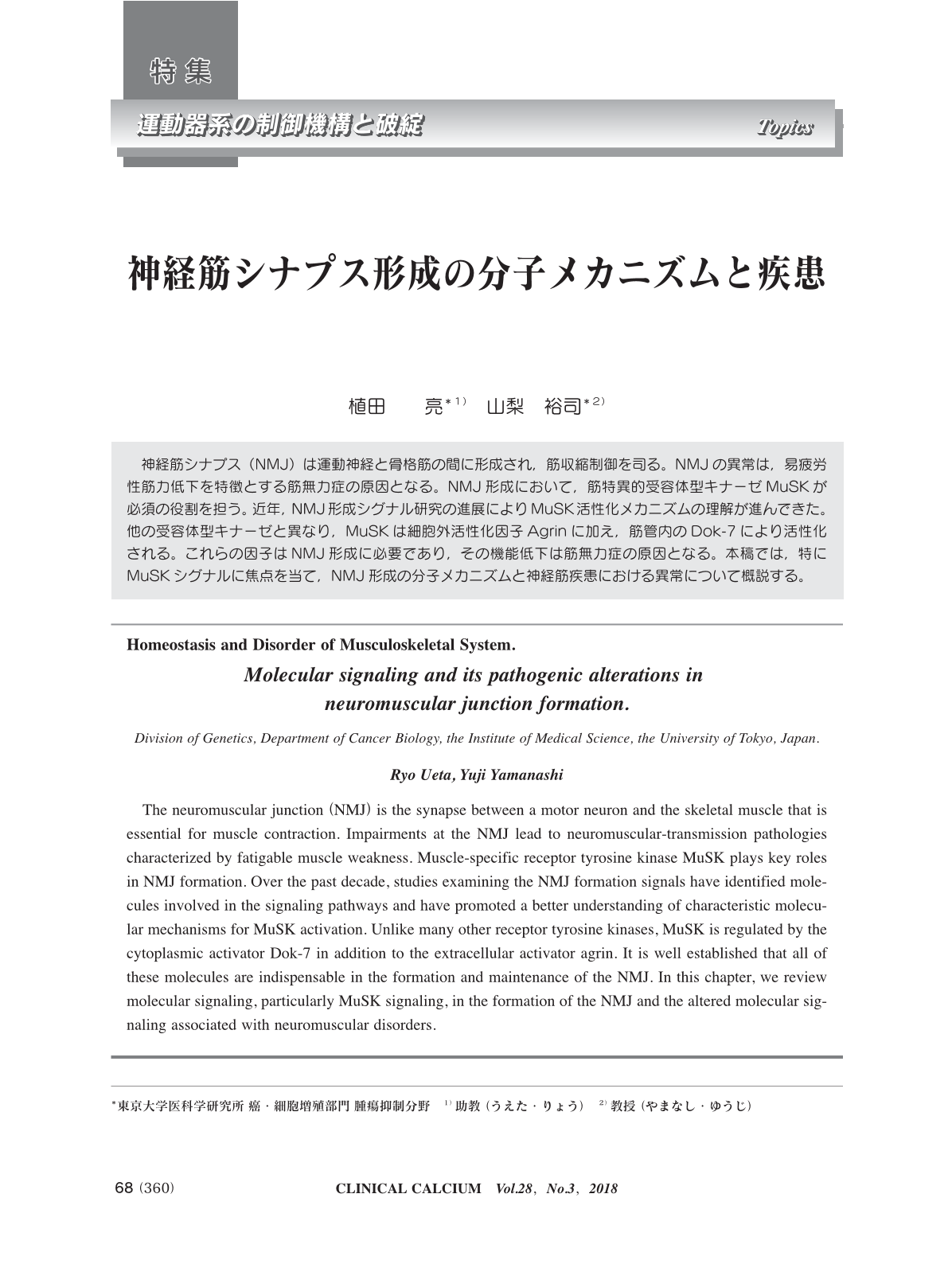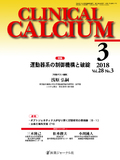Japanese
English
- 有料閲覧
- Abstract 文献概要
- 1ページ目 Look Inside
- 参考文献 Reference
神経筋シナプス(NMJ)は運動神経と骨格筋の間に形成され,筋収縮制御を司る。NMJの異常は,易疲労性筋力低下を特徴とする筋無力症の原因となる。NMJ形成において,筋特異的受容体型キナーゼMuSKが必須の役割を担う。近年,NMJ形成シグナル研究の進展によりMuSK活性化メカニズムの理解が進んできた。他の受容体型キナーゼと異なり,MuSKは細胞外活性化因子Agrinに加え,筋管内のDok-7により活性化される。これらの因子はNMJ形成に必要であり,その機能低下は筋無力症の原因となる。本稿では,特にMuSKシグナルに焦点を当て,NMJ形成の分子メカニズムと神経筋疾患における異常について概説する。
The neuromuscular junction(NMJ)is the synapse between a motor neuron and the skeletal muscle that is essential for muscle contraction. Impairments at the NMJ lead to neuromuscular-transmission pathologies characterized by fatigable muscle weakness. Muscle-specific receptor tyrosine kinase MuSK plays key roles in NMJ formation. Over the past decade, studies examining the NMJ formation signals have identified molecules involved in the signaling pathways and have promoted a better understanding of characteristic molecular mechanisms for MuSK activation. Unlike many other receptor tyrosine kinases, MuSK is regulated by the cytoplasmic activator Dok-7 in addition to the extracellular activator agrin. It is well established that all of these molecules are indispensable in the formation and maintenance of the NMJ. In this chapter, we review molecular signaling, particularly MuSK signaling, in the formation of the NMJ and the altered molecular signaling associated with neuromuscular disorders.



